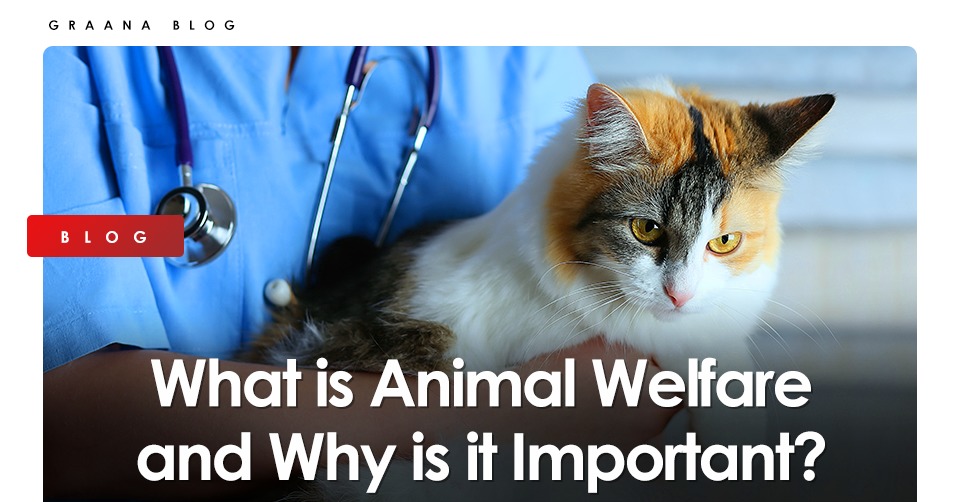
In many countries around the globe, animals are the breadwinners. They have the sole responsibility of taking care of a family. As per a 2015 Brooke’s report, 112 million donkeys, mules and horses are employed for work that supports 600 million people. These “invisible workers” are often mistreated and overburdened. They are underfed and exploited. In developing countries, proper medical facilities are absent. Culture norms are also not animal-centric. They are treated as second class citizens.
But, taking care of an animal is a basic right. It is at par with any other fundamental right. The onus is on humankind to provide for the voiceless and take responsibility for their welfare.
Graana.com highlights the key tenets of animal welfare and chalks out why it is important to take care of them.
Animal welfare refers to the conditions in which an animal lives and its reaction to the environment. A positive environment is indicated by a good state of welfare where the animal is treated well and is taken care of. An animal that is happy can also be confirmed through medical evidence in the form of good nutrition and psychological health as stated by behaviour.
In 2009, the Treaty of Lisbon declared that animal rights had the same importance as other aspirations of the European Union (EU) like social protection, health, gender equality and sustainable development.
In Pakistan, the 1890 Prevention of Cruelty to Animals Act was amended in January 2018 which further increased the scope of animal welfare through a series of fines and punishments for offenders.
Pakistan is also a signatory of Office International des Epizooties – World Organisation on Animal Health. The members have to ratify the rules and ensure that animals are given the five basic freedoms in order to provide a positive environment for the animals.
Francis Brambell, an Irish medical scientist, penned the Five Freedoms of Animal Welfare in 1965 which were later formalised by the UK’s Farm Animal Welfare Council in 1979. They highlight the minimum living standards or rights for animals.
These include:
Animals should be taken care of because it’s the most humane thing to do. It is not something one should do, but one must do. It is their basic right. But some communities do not treat them well. It is not because they are insensitive human beings, it is simply because they are not enlightened to do the right thing. They are not taught to respect the animals and take care of them. Several religions also encourage and dictate humankind to look after the voiceless and be considerate towards their needs. Communities and governments should run campaigns to create awareness regarding the rights of animals and highlight their plight in order to create sensitivity for the subject matter. At the same time, individuals should be educated and trained to undertake the responsibility of looking after the animals.
Graana.com in collaboration with Islamabad Capital Territory (ICT) administration has launched a campaign to cater for the welfare of the animals. The campaign aims to protect stray animals and provide them with a comfortable home. Vaccination drives will also be conducted where the animals will be vaccinated in order to protect them against diseases. Graana.com further welcomes volunteers to be part of this initiative aimed to make lives better for the voiceless.
Be the change! Join the initiative! Register now at: https://www.graana.com/pages/clubs/graana-animals/
Islamabad: The Federal Board of Revenue (FBR) is preparing to seek approval from the International…
Riyadh: As Saudi Arabia’s Vision 2030 enters its third phase for the period 2026–2030, the…
Islamabad: The Capital Development Authority (CDA) has earmarked PKR 200 million to settle outstanding land…
Lahore: Punjab Governor Sardar Saleem Haider Khan has promulgated two key ordinances aimed at modernising…
Islamabad: Pakistan’s tax authorities are intensifying efforts to detect undeclared wealth by monitoring social media…
Karachi: The State Bank of Pakistan (SBP) has indicated that it will maintain a cautious…